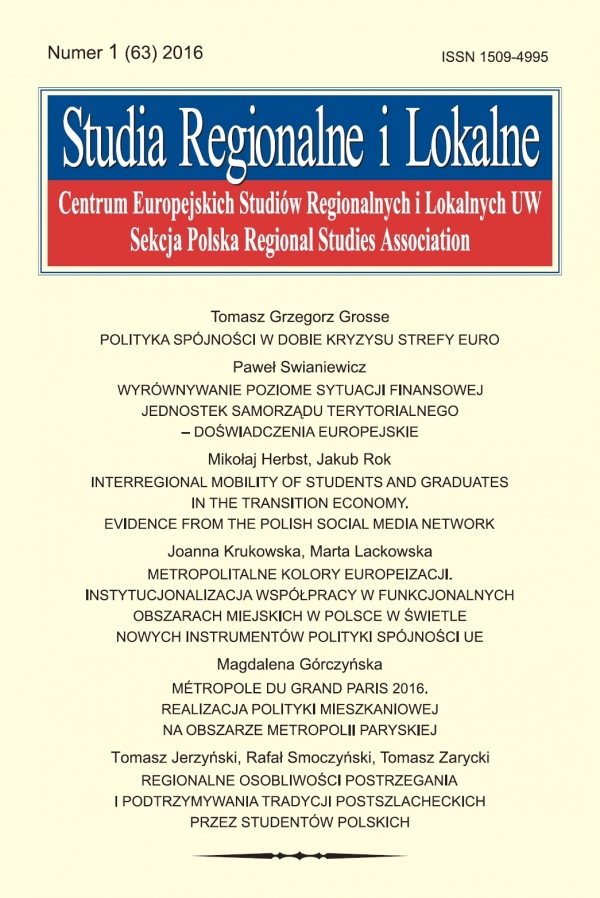Issue:
1(63)/2016
Mikołaj Herbst, Jakub Rok
Interregional mobility ofstudents and graduates in the transition economy. Evidence from the Polish social media network
DOI: 10.7366/1509499516303
Mobilność przestrzenna studentów i absolwentów uczelni wyższych w czasach transformacji. Analiza na podstawie danych z serwisu społecznościowego
Celem autorów artykułu jest pełniejsze zrozumienie mechanizmów mobilności kapitału ludzkiego w kraju przechodzącym systemową transformację. Autorzy zbadali unikalny zbiór danych pochodzących z internetowego serwisu społecznościowego. Przedstawiają typologię migracji wykształconych Polaków, a następnie opracowują empiryczny model przepływów migracyjnych studentów i absolwentów między województwami. Jak się okazuje, międzyregionalna mobilność kapitału ludzkiego w Polsce jest niska, a kluczowym czynnikiem skłaniającym do migracji jest niewielka odległość między miejscem zamieszkania a regionem docelowym. Wykształceni (lub chcący się kształcić) migranci preferują regiony metropolitalne, które doświadczają dzięki temu napływu netto kapitału ludzkiego. W regionach pozbawionych wielkich miast następuje natomiast drenaż mózgów.
Interregional mobility ofstudents and graduates in the transition economy. Evidence from the Polish social media network
The aim of this article is to gain a better understanding of the patterns of human capital mobility in transition economies. It exploits a unique dataset from a Polish social networking website to develop a typology of skilled migration. Determinants of human capital flows are further elaborated using an empirical model of student and graduate migration. It is found that spatial mobility of human capital in Poland is low, and the distance between the home region and potential destination plays the most significant role in migration decisions. Migrations of skilled individuals favour metropolitan areas, which experience a net gain of human capital, while all other regions are subject to brain drain.
Affiliation:
Mikołaj Herbst: University of Warsaw, Centre for European Regional and Local Studies (EUROREG), Krakowskie Przedmieście 30, 00-927 Warsaw, Poland;
m.herbst@uw.edu.pl Jakub Rok: University of Warsaw, Centre for European Regional and Local Studies (EUROREG), Krakowskie Przedmieście 30, 00-927 Warsaw, Poland;
j.rok@uw.edu.pl 


